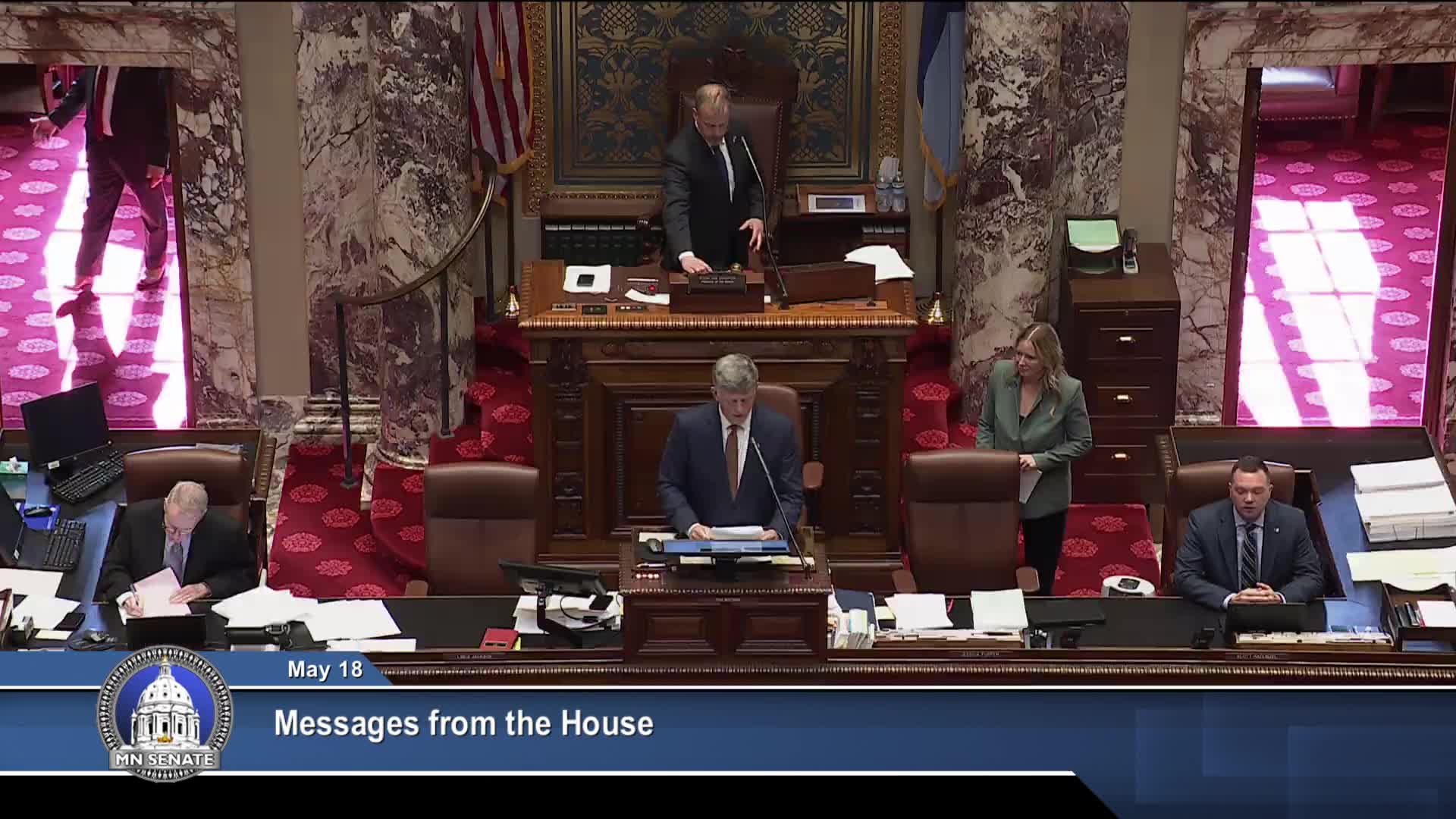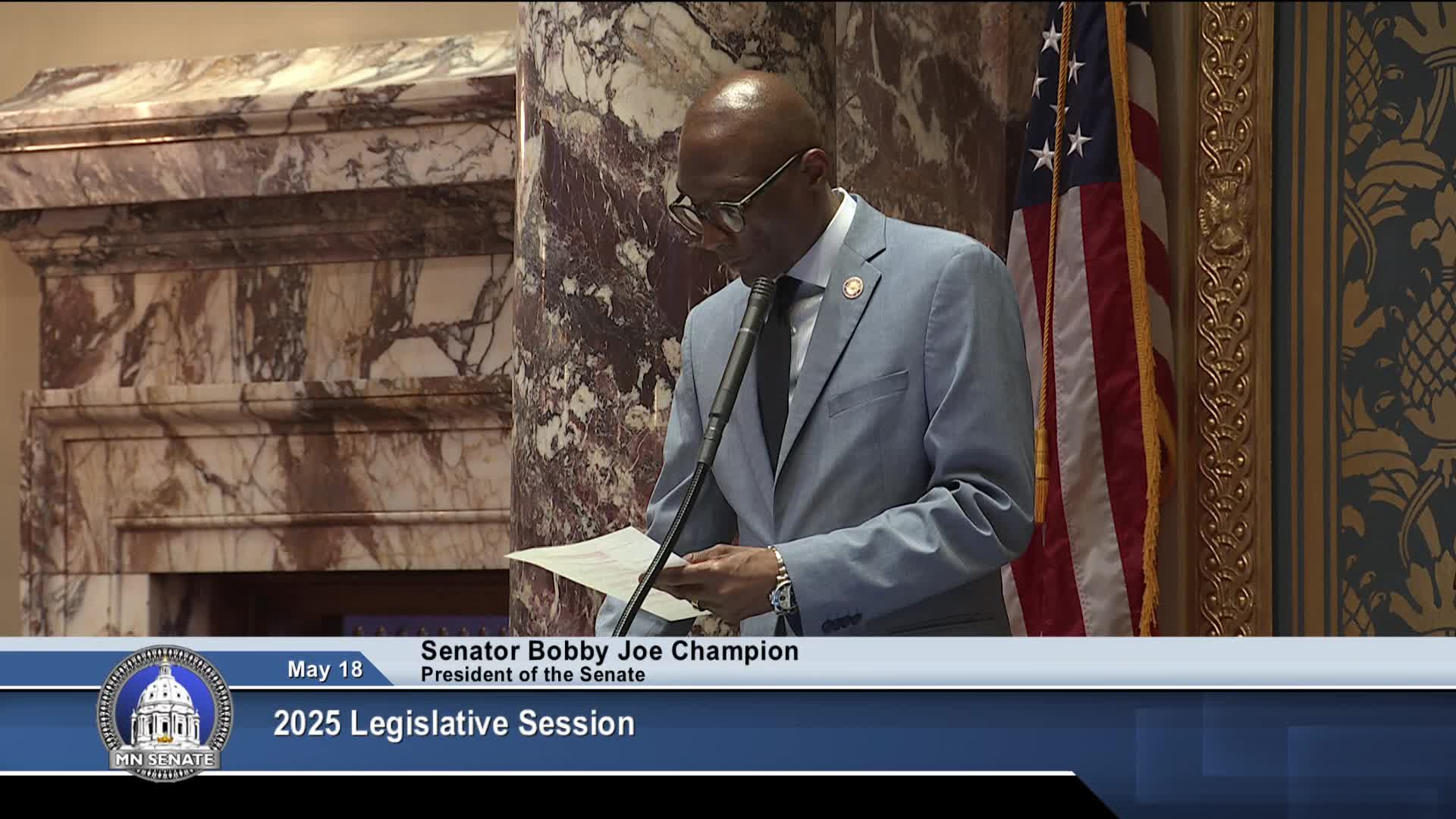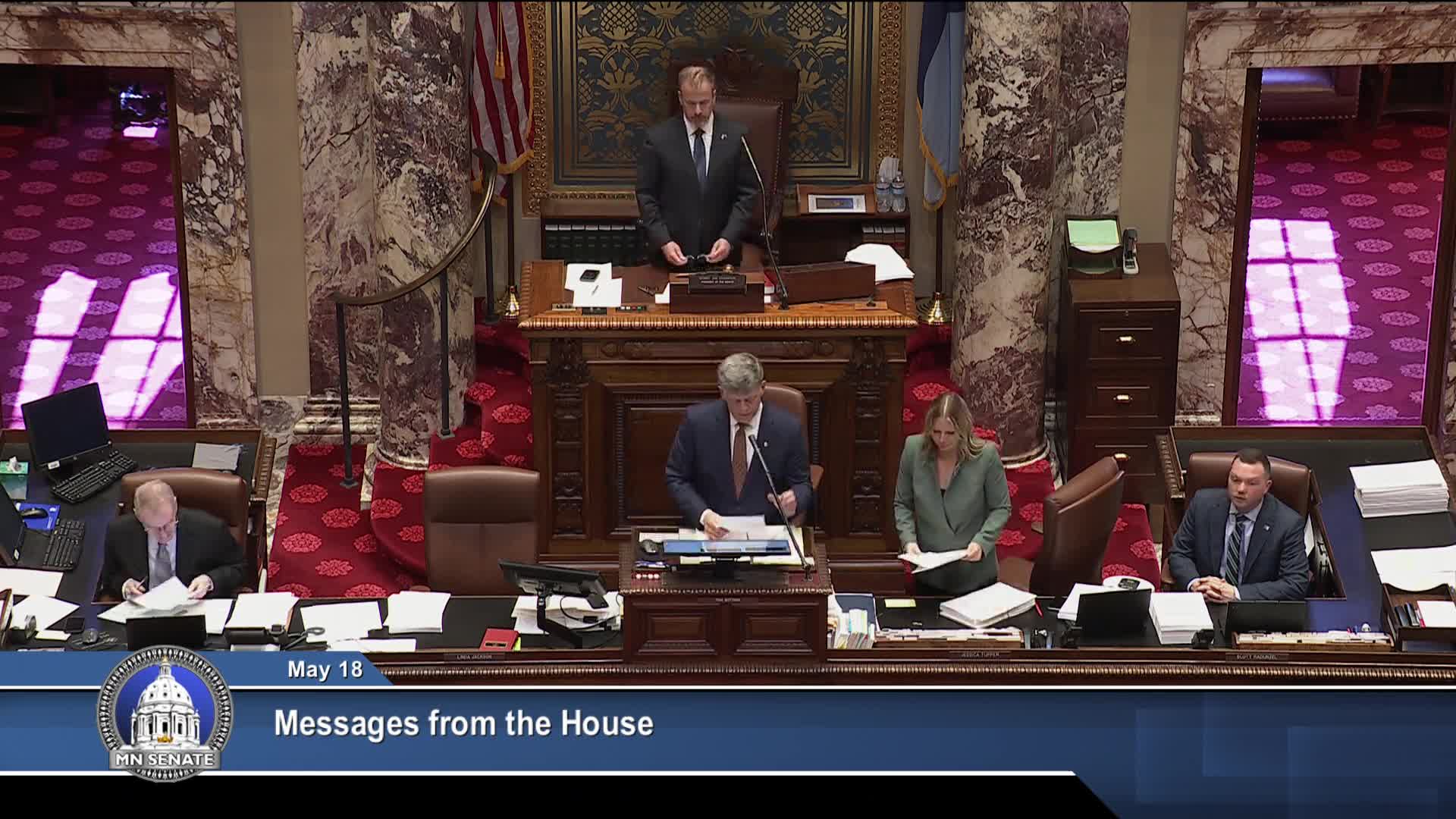Article not found
This article is no longer available. But don't worry—we've gathered other articles that discuss the same topic.

Senate adopts conference report on agriculture budget, preserves food-access and cottage-food changes

Senate approves Legacy appropriations conference report amid disputes over land purchases, priority projects and festival funding

